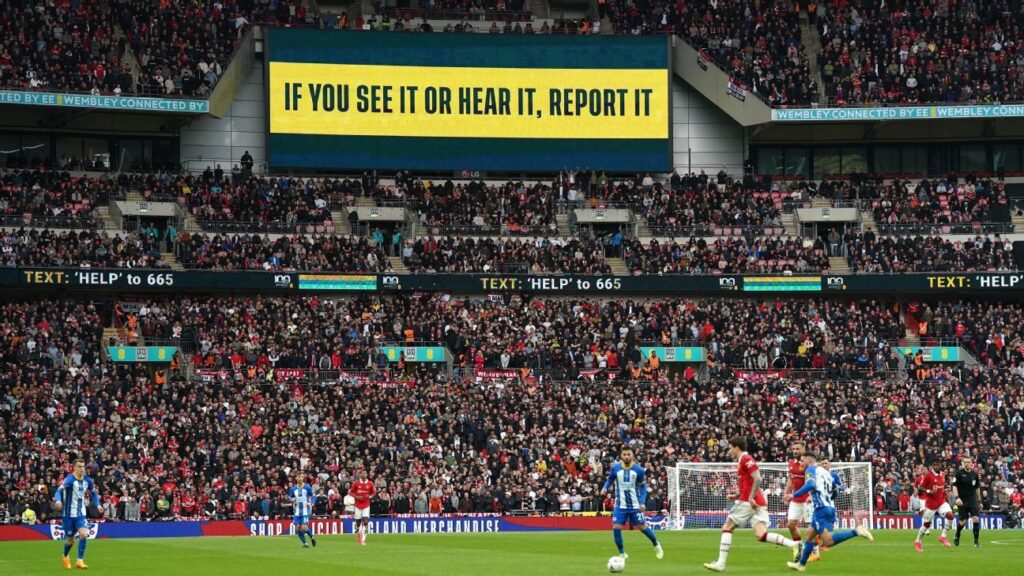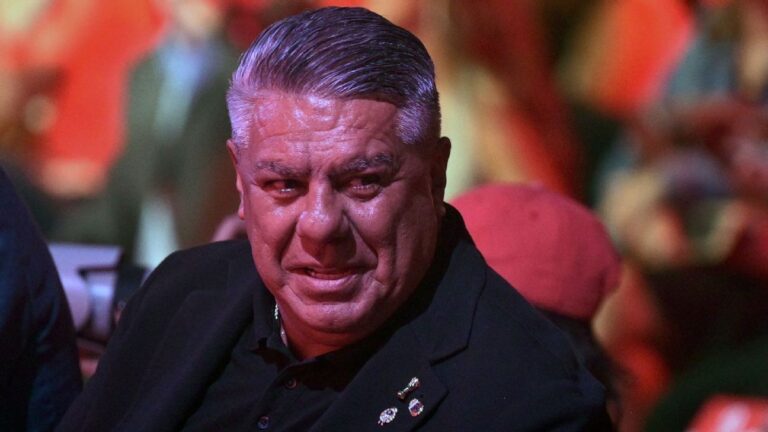Anti-discrimination group Kick It Out received a record number of reports of discriminatory behavior during the 2022-23 soccer season.
Figures released by the organization on Wednesday showed that 1,007 reports — an increase of 65.1% over the previous season — were made during the campaign from the grassroots and professional games in Britain and across social media.
Discrimination reports in the professional game rose by 27.4% to 484, including those received from the Premier League, Football League and National League, domestic cups, European and international competition, Women’s Super League and Women’s Championship.
A statement from Kick It Out referred to the rise in reports as a “significant leap” that “highlights that discrimination is still a serious issue within the game.”
However, it added: “The record figures could also be attributed to an increased awareness of reporting procedures and fans becoming less tolerant of discriminatory behavior.”
Reports of online abuse rose by 279% with the organization receiving 207 more reports related to online forums and social media than in the previous 12 months.
Racism was the most common form of discrimination, accounting for just under half (49.3%) of all reports, while those related to sexism and misogyny represented the largest rise in a specific discrimination type.
Figures show a 400% increase in reports of sexism and misogyny, up from 16 to 80.
Faith-based discrimination fell slightly due to a 29.5% drop in the number of reports received of an antisemitic nature, but Islamophobia (300%) and sectarian chanting in the professional game (15.8%) were both higher than in previous seasons.
“The significant increase in reports across the game is alarming and strengthens our resolve to tackle discrimination in all areas of football,” Kick It Out chief executive Tony Burnett said. “Our figures provide a snapshot of what is happening across the game, but we still don’t know the full picture because clubs, leagues and governing bodies aren’t currently mandated to share their reporting data.
“This underscores why football urgently needs a centralized reporting mechanism to collate and monitor reports. Only once that happens can we understand the full extent of the problem within football and tackle it with the full force of the sport.”




